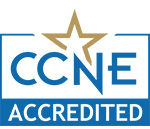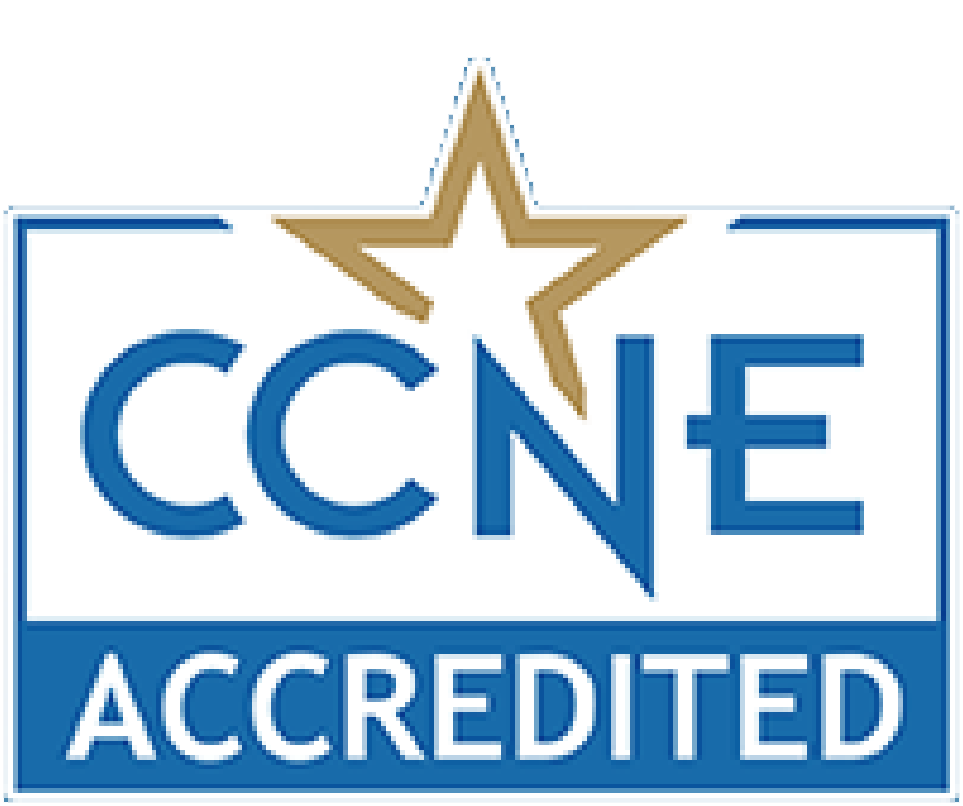
MSN Nurse Educator
Master of Science in Nursing Nurse Educator Specialty Track
Next Start Date | Sept 02
Chamberlain has the largest nursing school in the country. We are dedicated to relentless, personalized support for our students.

MSN Nurse Educator at a Glance
Chamberlain’s Master of Science in Nursing Educator specialty track is designed to provide the tools to educate future and current nurses. By utilizing teaching-and-learning t heories and strategies within an academic and clinical practice setting, students of this Specialty Track will gain the knowledge they require to become a nurse educator.
Student finance advisors can answer your financial questions, tell you more about Chamberlain’s list of 3,500 grants and scholarships available and discuss your program completion timeframe before applying and taking the next step.
Students of the MSN Nurse Educator Specialty Track enjoy the same great benefits of Chamberlain’s other online master’s degree programs:
- Earn your degree in as few as 2 years by taking 1 course at a time
- No mandatory login times
- 100% online coursework
- No GRE or entrance exams
- 24/7 access to the online platform
Opportunity to collaborate with an experienced nurse educator to develop plans, create curriculum and implement and evaluate educational initiatives
Ability to practice many of the concepts, principles and tools you have learned and acquired during the program in a real world environment
Networking with current nurse educators and building relationships interprofessionally while completing your practicum project
Online MSN Nurse Educator Program Benefits
How does the Nurse Educator practicum benefit you?
While in the Nurse Educator Specialty Track program, you will have an opportunity to practice what you've learned while completing 144 hours of practicum experience under the guidance of faculty and an experienced nurse educator.
Of the 144 hours, 96 of those hours will be devoted to an educational practicum project which will consist of developing, planning, implementing and evaluating an actual teaching experience. Additionally,48 of your hours will be completed in a clinical practice setting with a focus on client outcomes in a clinical practice setting.
To learn more, view the Curriculum Grid.
MSN Educator Track Courses
In this course, the student will focus on the processes of curriculum development. Traditional and innovative program development applied to various educational environments are examined. Curriculum and instruction are analyzed within a theoretical framework.
In this course, the student will be introduced to the educator role in academic and healthcare settings. Educational models and instructional strategies within the theoretical foundations of education will be explored. Cultural humility and legal and ethical issues surrounding education will be explored.
In this course, the student will examine educational theory and methods within experiential learning environments including clinical, simulation and skills laboratory. Pathophysiology, pharmacology, and physical assessment concepts are applied within learning activities.
In this course, the student will examine assessment and evaluation strategies that support learning outcomes in education. The student applies reliable and valid methods in the assessment and evaluation of learning outcomes.

Still have questions?
Let us help you.
Request information to connect with an admissions representative.
If your CGPA falls below our requirements - in the range of 2.5 to 2.99 - you may still be considered for provisional acceptance into the online MSN Nursing Informatics program.
How to Enroll
MSN Nurse Educator Track Admission Requirements
For your MSN Nurse Educator Specialty Track nursing application, you should have:
- A degree in nursing at the bachelor’s level or higher from an accredited institution
- A minimum undergraduate GPA of 3.0 on a 4.0 scale
- Current, active and unrestricted RN license in the U.S. or in a jurisdiction that is an associate member of the National Council of State Boards of Nursing (NCSBN).
Can I transfer credits into the MSN program Nurse Educator Track?
Yes, but there are guidelines, requirements and restrictions. General guidelines for transfer credits include:
- A maximum of six semester hours may be accepted towards your MSN degree
- Core coursework must have been completed within the past 7 years for transfer; specialty coursework with the past 5 years
- A grade of ‘B’ or higher is required for transfer credits
Our admissions team can get you started on a transcript evaluation so you’ll know exactly what will transfer in before making your enrollment decision.
Live Your Life and Earn Your Degree While You Work
With flexible scheduling and 100% online coursework, Chamberlain makes it easy to fit your classes into your life — instead of building your life around your classes.
The MSN Nurse Educator curriculum is designed to prepare future nurse educators with the skills, strategies and concepts needed to educate future extraordinary nurses to provide evidence-based care for the changing population.
- Curriculum development
- Active learning strategies
- Evidence-based teaching
- Learning theory
- Instructional methods
- Assessment of student learning
- Evaluation of instruction

The difference you’ll make as a nurse educator will be significant, which is why your loan options should be just as impactful
The Nurse Faculty Loan Program (NFLP) is a low-interest federal loan repayment program for eligible students in Chamberlain’s MSN Nurse Educator specialty track who intend to pursue a career as nursing faculty. Up to 85% of the NFLP loan may be forgiven after you graduate and begin working in a full-time (or in multiple adjunct positions resulting in full-time equivalency) teaching position.
MSN Program Costs
Tuition & Expenses for the MSN Nurse Educator Track
Chamberlain provides you with individualized support throughout your educational journey beginning with the admissions process. Your admissions representative will work with you to build a schedule that will work with your life and finances, whether that's one class or three.
View tuition and expenses information for the MSN degree program.
Trying to save money? Here are some great options to help you cover the cost of tuition:
- $3,500 in Scholarships Available
View Graduate and External Scholarship opportunities. - Partner Tuition Rates
Chamberlain partners with healthcare institutions, community colleges and associations to provide accessible educational opportunities for registered nurses. See if your employer, community college or association has an education partnership with Chamberlain that could provide you with tuition savings. - Chamberlain grad? Save on tuition
Earning your MSN is closer than you think, Chamberlain alumni are eligible to save $100 per credit hour, for a total savings of $3,600.
Please note: You must re-apply each academic year for NFLP funding, which contingent upon HRSA awarding to Adtalem Global Education Inc., d/b/a/ Chamberlain University
Join a Proudly Accredited Institution
Are you looking for an accredited MSN degree program?
Chamberlain University accredited by the Higher Learning Commission (HLC), www.hlcommission.com an institutional accreditation agency recognized by the U.S. Department of Education.
Chamberlain University confers online degrees from its Main Campus in Addison, IL.
Practicum option availability varies by state/location. Chamberlain reserves the right to update information as it becomes available. For a complete list, and to learn more, check out our authorizations or view our approvals in your state.
Looking for something else?
Explore our related programs.


